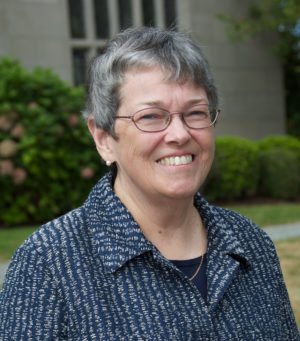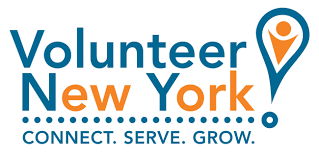
In 1992, Visiting Nurse Services in Westchester and the Ronald M. Alpert Palliative Care Program at White Plains Hospital Center partnered in creating a service to provide comprehensive end-of-life care for Westchester County residents. Thirty years later, Hospice of Westchester operates as the county”™s only freestanding hospice in Westchester that is not part of a wider medical care network.
The hospice, which began with a 20-person staff, now has 61 staff members including a medical director, registered nurses, licensed social workers, spiritual counselors, certified home health aides and bereavement counselors.
“We have a very robust bereavement program, which is required by Medicare ”” but you can do it in different ways,” explained Mary K. Spengler, CEO for the hospice. “We have two bereavement coordinators who do individual counseling, as well as group counseling with families and also for the community. We provide bereavement services for the community, whether or not they had a relative on hospice or not.”
Spengler noted Hospice of Westchester also maintained strong ties with local organizations and individuals outside of the medical field.
“We have a very robust complementary care program, which includes music therapy to relationship with the Westchester Conservatory of Music,” she continued. “We have art therapy, massage, reflexology, and we also have a very active volunteer program which includes patient visits and phone calls, and volunteers who give a lot of administrative support in the office. And we have a wonderful flower program in conjunction with Trader Joe”™s, who donate their flowers, plus two wonderful volunteers who put them together in little vases which the staff takes to patients and their families ”” it”™s a very, very nice program.”
Over the years, Hospice of Westchester expanded its services with groundbreaking additions. In 2000, it became the first hospice organization in Westchester to establish a Complementary Care Program in 2000. In 2013, it expanded a pediatric palliative care program named Comfort Crew and became the first organization to provide a formalized palliative care program in Westchester County designed specifically for children.
As the hospice prepares for its 30th anniversary, it is coming off two anxious years when the Covid-19 pandemic forced a significant shift in operations, with Spengler recalling a shower of complex regulations coming from federal, state and local levels.
“For probably the first nine to 12 months, those regulations kept on changing, which made it even more difficult for us to comply,” she said. “Today, we still see regulations changing, particularly with mask mandates. There”™s still confusion around some of the mandates, although for us we seem to have been able to implement them as required.
“Our goal when we started ”” and our goal continues to be ”” keeping our patients, their families and our staff safe while still fulfilling our mission,” she added. “We never closed during the pandemic ”” from the beginning, we continued to care for those in our community who required individualized care. Now, that”™s not to say that that was easy. We had to implement a lot of protocols, and guidelines that were necessary to achieve the goal of keeping everyone safe.”
Still, the pandemic peak months were not without difficulty, with some staff being furloughed and others being paid reduced hours. However, she stressed that operations did not suffer because “most of our staff are out in the field, seeing patients in their homes and nursing homes,” although that also posed several challenges.
“Some visitations were limited because about 30% of our patients are in skilled nursing facilities ”” and I don”™t have to tell you what happened to the skilled nursing facilities during the pandemic,” she said. “That created another layer that we had to navigate, so that we could be assured that our patients were seen, that their families were comforted, and that all their needs were met. Some of that required that we did virtual visits because we could not visit in the nursing homes.”
There was also the problem of getting the first round of Covid vaccines, with Spengler recalling her hospice staff was not initially classified in the first round of vaccinations ”” it was only through the advocacy of the Hospice & Palliative Care Association of New York State that Spengler”™s staff got vaccinated during the initial wave of inoculations.
Today, the hospice is treating 82 adult patients ”” there are currently no pediatric patients ”” and Spengler noted the organization”™s staff is solidly in place.
“We have very little turnover here,” she said. “I think people enjoy their jobs. We tend to have an older workforce with people that have worked in other areas of healthcare before and now come to hospice because they find it very rewarding.”
For herself, Spengler said she enjoys “helping staff see they can provide care to people who are probably most vulnerable in our community. My goal is to ensure the quality of care that we deliver is here, so one of my bigger goals is to support the staff to achieve that. I find working with staff that is here one of the most rewarding experiences of my career.”



















